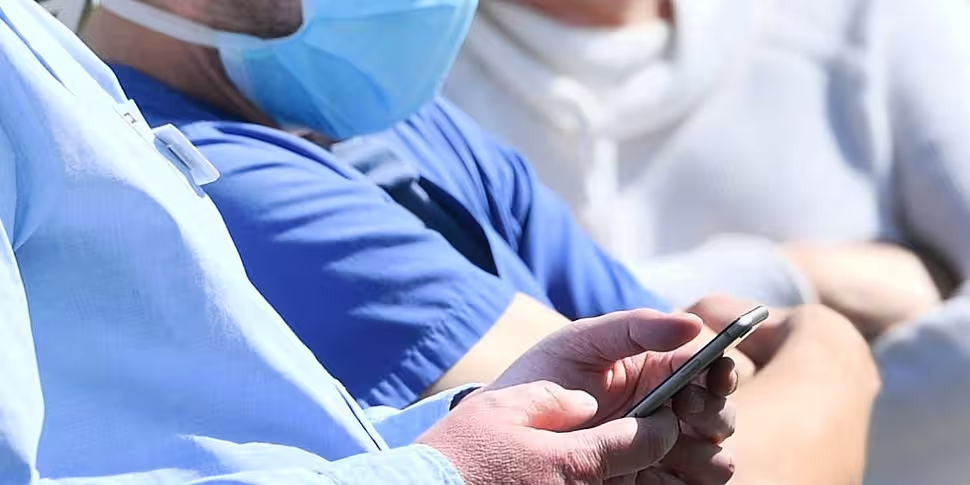An expert has called for contact tracing technology to be introduced here to ensure any contacts of COVID-19 patients can be 'very, very rapidly' identified and contacted.
The latest figures for the Republic show there were 14 further coronavirus deaths in Ireland - bringing the death toll here to 334.
The total number of cases, meanwhile, has reached 9,655 - with the daily number of new confirmed cases at the moment remaining significantly below a 10% daily increase.
Ultan Power, a Professor of Molecular Virology at Queen's University Belfast, spoke to Newstalk Breakfast about the situation in Ireland at the moment.
He explained: “The main data for me that is very important to keep a track on is the number of people who are actually dying of the disease.
"At least in Ireland, [those figures] are fairly accurate in terms of what’s happening."
Prof Power said the curve of the virus "looks reasonably well" in Ireland.
He observed: "It’s a little above what has happened and what is happening in South Korea, and South Korea would be one of the benchmarks worldwide in terms of the numbers of people who have died from the disease.
“Ireland is just a little above that... things are going in the right direction.
“It’s by no means a time for complacency, obviously: if anybody takes their foot off the pedal at the moment, all you need is a few pockets of infected individuals going back into society and the virus will start circulating again very rapidly.”
He warned that the "possibility is definitely there that there are potentially dark days ahead" if we back off the current measures too early.
Contact tracing technology
Prof Power also said "there’s still quite a bit of work to be done" when it comes to testing - and argued that testing needs to be coupled with contact tracing technology as well.
He explained: “What’s happened in South Korea is they used smartphones as a means to be able to do things like contact tracing.
"I’m not a technologist by any stretch of the imagination, but I’m aware companies like Google and Apple are beginning to talk together to get an app that will allow people to trace the contacts they have had in the last 14 days, for example.
“These are the kind of measures that will massively help identify the individuals who may be positive.
“Testing alone is not good enough - it’s important, but then you must do the isolation of that person, and then you must do the contact tracing of everybody that has been in touch with that person."
Prof Power also said two types of testing are needed - both the traditional test to see if someone is infected with the disease, but also an antibody test to see whether someone who has recovered has any immunity to the disease and for how long.
He said that second type of testing is still in its early stages, and we're waiting for data from China and Italy to get more information about the degree to which people are protected from re-infection.
He also warned that the number of people who've been infected to data is a "very, very small percentage of the overall population".
He said: “There are still many, many people who are vulnerable to infection if you lift restrictions… and for example you have someone coming in from London or Milan who are flying into Dublin, and they bring the virus back in with them.
“We don’t know if it will become more pathogenic or more severe in a second wave yet… an awful lot depends on how the virus adapts."
Prof Power stressed that the “consequences are devastating” if strict measures to limit the spread of the virus aren't introduced or adhered to quickly.
He explained: “Even after the lockdown in London, there were still tonnes of people crammed into the Tubes… a perfect breeding ground for the virus to be able to transmit.
"The same thing happened in New York: it took quite a while for the local government to instigate the kind of restrictions that were needed."









